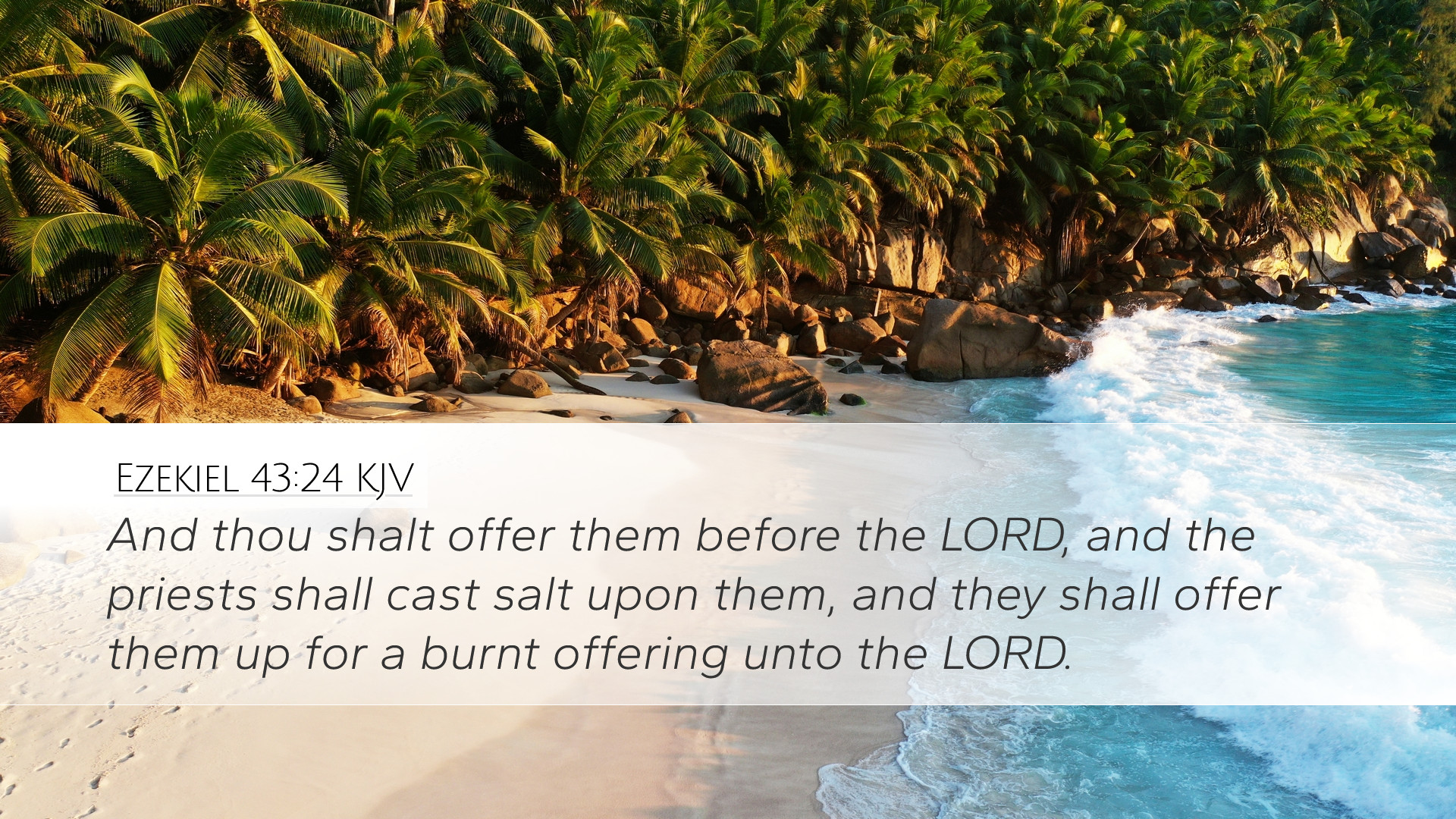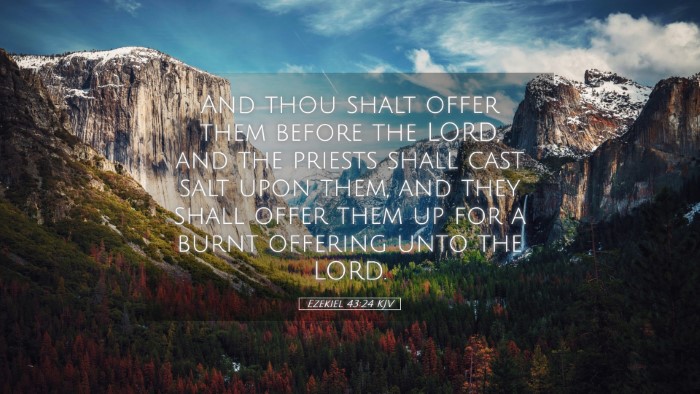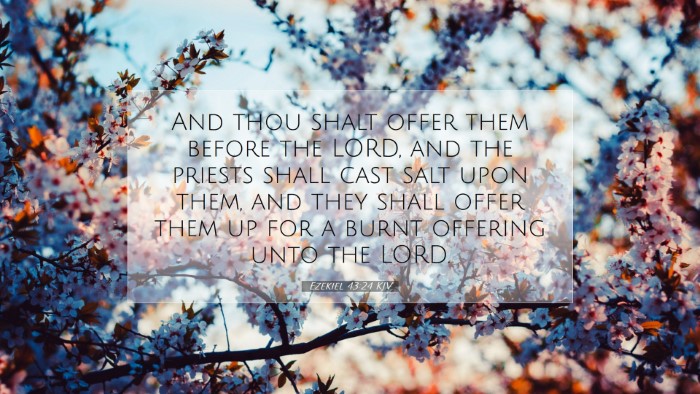Ezekiel 43:24 - Commentary Summary
Verse Text: "And thou shalt offer them before the LORD; and the priests shall cast salt upon them, and they shall offer them up for a burnt offering unto the LORD."
Contextual Analysis
This verse is situated within a larger prophetic vision of the restoration of the Temple and the worship practices that will take place therein. Ezekiel, as a priest and prophet, emphasizes the significance of the Temple service and the proper protocols surrounding offerings.
Interpretation of Sacrificial Practices
The offerings mentioned in this verse are integral to the Mosaic system of worship. The act of presenting sacrificial animals to the LORD illustrates several theological concepts:
- Substitution and Atonement: The animals, being offered as burnt offerings, symbolize the substitution of an innocent life for the sinful life of the offerer, thereby maintaining the covenant relationship between God and His people.
- Holiness and Purification: The priests casting salt upon the offerings denotes purification and the preservation of the covenant. Salt was a symbol of incorruption and was often associated with the covenant God made with Israel (Leviticus 2:13).
- Worship and Reverence: The presentation of offerings is a form of worship that acknowledges God's sovereignty and grace. This act serves as an appeal for God's favor and guidance.
The Role of the Priests
According to Albert Barnes, the role of priests is crucial in facilitating the relationship between God and His people. They serve not only as mediators but also as teachers of the law. In the context of Ezekiel 43:24, the priests’ actions—casting salt and offering burnt sacrifices—underscore their duty to keep the worship practices holy and in accordance with divine instruction.
The Symbolism of Salt
Matthew Henry notes that salt, as mentioned in this verse, has multiple symbolic meanings:
- Endurance: Salt is a preservative, reminding the Israelites of the enduring nature of God's covenant.
- Purity: By casting salt, the priests signify that the offerings are pure and sanctified, fitting for God's acceptance.
- Savor: Jesus later picks up on this imagery, calling His followers the "salt of the earth," emphasizing the church's role in the world to maintain righteousness and truth (Matthew 5:13).
Theological Implications
From a theological standpoint, Ezekiel 43:24 bridges the ancient practices of sacrifice with the future implications of worship in the New Covenant. Adam Clarke elucidates this by highlighting how these sacrificial practices foreshadow the ultimate sacrifice of Jesus Christ, who fulfills all sacrificial requirements by His atoning death.
Application for Modern Believers
For current pastors and theologians, this verse serves as a reminder of the seriousness of worship and the importance of presenting oneself as a living sacrifice (Romans 12:1). The metaphorical use of salt prompts believers to reflect on how they can preserve their faith and be agents of grace in a corrupt world.
Conclusion
The rich layers of meaning in Ezekiel 43:24 call not only for a recognition of ancient practices but also for their continued relevance in contemporary faith life. Scholars and students alike can glean from this text a deeper understanding of worship, holiness, and the mediator role of Christ.


